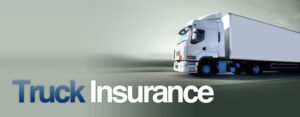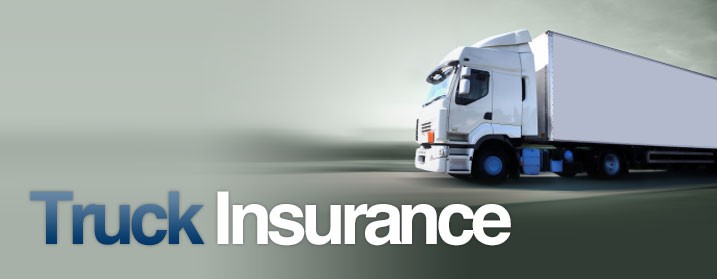
A business that makes use of commercial trucks for its activities would mostly have the protection of their vehicle (s) as the utmost priority. It is so that they do not leave the business at risk of financial and operational shortcomings in the case of an accident. They need to know the cost of commercial truck insurance around them.
Having commercial truck insurance is different from having the everyday standard individual auto insurance. And if the day to day running of your business involves the use of any truck, you would need a commercial truck insurance cover. You must have a good knowledge of what it takes.
While your auto insurance would provide you with cover for your trips and every other private movement, your commercial truck insurance would cover you on business trips you make using your truck. It would include every other necessary business movement with your vehicle that might not necessarily be commercial haulage.
What Does My Commercial Truck Insurance Cover?
- Non – Trucking Coverage: Your truck can go on trips that are not commercial and still have coverage if your commercial truck insurance plan has non-trucking insurance coverage.
- Motor-Truck Cargo Coverage: This provides cover for the product or raw materials that you carry in your truck. In the case of an accident or theft, your insurer will reimburse you the value of the product you might have lost.
- Rental Reimbursement Coverage: This coverage provides you with money to rent a replacement for your truck in the case of an accident or theft, while your vehicle is being repaired or replaced.
- Uninsured /Under-Insured Coverage: This would provide you with coverage for the cost of damages to you. It is mostly when another driver is at fault, but the other driver might not have enough coverage to cover for your loss.
- Truck Liability Coverage: This would cover for risk associated with accidents or damages while driving that you are at fault. The coverage will provide you include for liability to cost of injury and damages for you and any other injured party involved in the accident.
- Physical Damage Coverage: This type of cover would only provide coverage for the liability cost of damages to your truck from an accident or any other accident.
- Bobtail Coverage: This would cover you if you drive a truck under someone else’s trucking liability insurance. At the same time, you are under dispatch, or probably you are hauling a trailer not licensed under your name.
What Does Your Commercial Truck Insurance Not Cover?
- Your coverage might not offer cover for internationally caused damages to your truck caused by you or any other party.
- Your coverage would not cover for personal belongings in your truck in the case of an accident or any incident.
What Is The Cost of Commercial Truck Insurance?
The cost of commercial truck insurance can range from $8,000 – $18,000. It is a probable estimate because you might end up paying more or a cost-effective lesser price, depending on how properly you make your price comparison, how much information you are willing to search for, and the quality of your insurance company.
It is necessary to know that the cheapest insurance plan might probably not be the best fit for your needs. You should make sure you know a lot about any policy before purchase.
Certain factors are sure to influence your rate. They include :
- Your Driving Record
- Your age
- The condition of your truck
- Your truck storage area
- What you haul
- Your operating radius: this defines how far you might typically drive.
- The cost of your truck.
Your insurance policy might set a certain cost for their payment plan, depending on the circumstances. The general average cost might range between the following :
- Primary Liability : $5,000 — $7500
- Physical Damages : $1,000 — $3,500
- Bobtail Coverage: $350 — $500
- Uninsured /Under-Insured: $1000 — $2000
- Occupational Accident : $1600 — $2,500
- Cargo Coverage: Differs depending on cargo value.
Measures To Cushion The Cost of Your Commercial Truck Insurance.
- Having a clean Driving Record; Most insurers would want to cover drivers that won’t cause them so much money by causing accidents. As an incentive, there are several low-cost premia offers to individuals or organizations with safe vehicles and drivers who possess a clean driving record.
- You can pay your premiums yearly in a whole lump. Most insurance companies offer discount rates ranging from 10% – 20% for lump sum payment.
- You can consider options to pay a higher deductible, as this can be linked to lower premiums. You should understand your policy payments as some higher deductible payments could still lead to paying more in the long term.
- Some insurers offer a ‘Smart Haul Program’ that could save you an extra 3% on the policy if you use an electronic logging device (ELD) that permits them to access your driving details.
- Hire Truckers can save easily on their policy if they have a commercial driver’s license (CDL). It is possible if you can access a commercial driver’s license discount
Where Can You Get A Commercial Truck Insurance
There are several ways you can get yourself commercial driving insurance for your business to cover your insurance needs.
- Independent Agents:
You can contact independent agents that work with different insurance companies. They would provide you with so much information and suggest rates that would most likely suit your needs.
- Your Local Insurance Agent:
Your local insurance agent can help you make informed decisions about the best coverage options that suit your needs.
- Insurance Marketplace :
You can purchase a commercial truck driver’s insurance directly from the insurance marketplace
It can be daunting to find insurance, especially for new truck drivers. The unofficial ‘Two-year rule’ that most commercial truckers insurance companies have against insuring drivers that have less than two years of clean driving record.
Whichever way you choose to go about acquiring your commercial truck insurance, you settle for options that are both cost-effective and suits your needs. Having thorough knowledge and information about different options can help you make better decisions.






